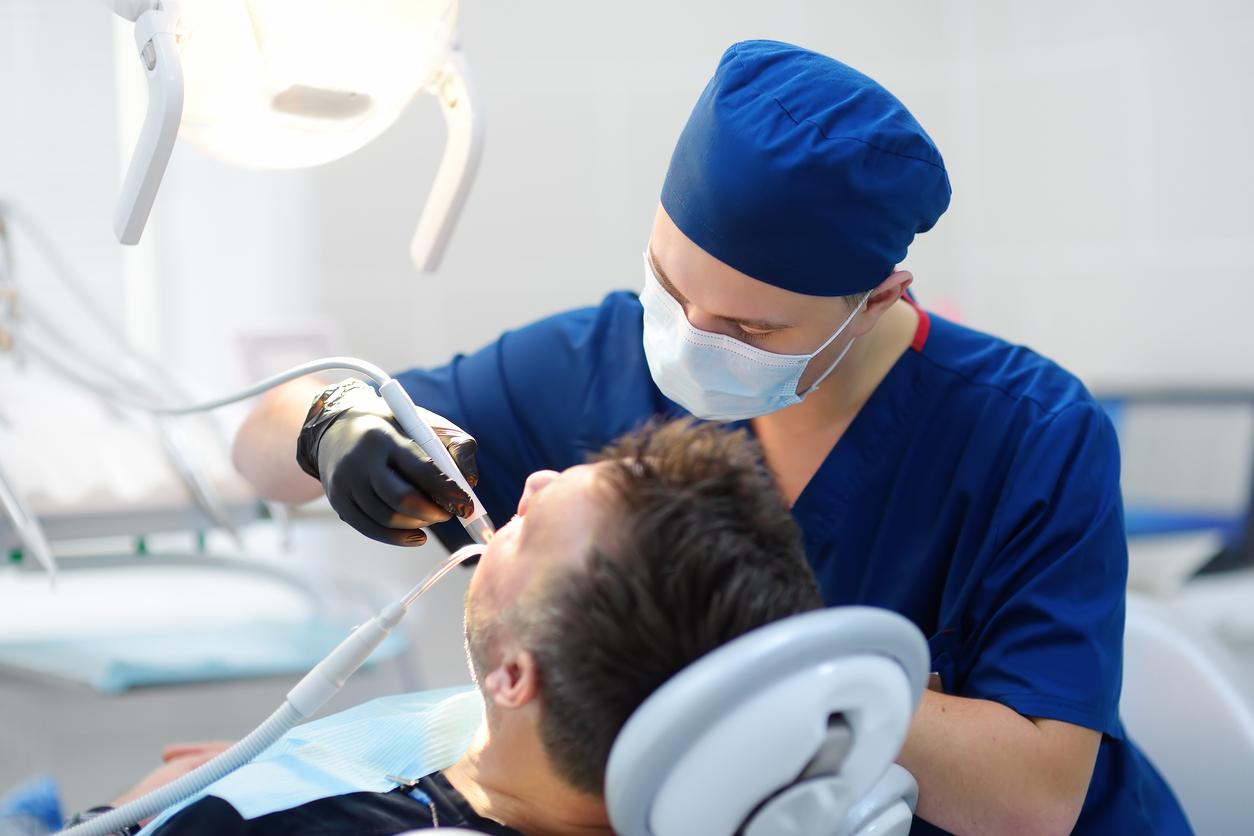“The proportion of people having had a colonoscopy following a positive colorectal cancer test has decreased,” says Santé Publique France.

- Colorectal cancer (or colon and rectal cancer) affects the large intestine.
- Colorectal cancer can be cured if detected early.
- The proportion of people having a colonoscopy following a positive colorectal cancer test has decreased to 82.6% in 2020-2021, which is below the European benchmark considered “acceptable” of 85%.
According to a new investigation of Public Health France, lThe proportion of people who have had a colonoscopy following a positive colorectal cancer test is still insufficient.
Colorectal cancer (or colon and rectal cancer) affects the large intestine. With 43,000 new cases detected each year and 17,000 associated deaths, this pathology is the second leading cause of death by cancer in France.
Colorectal cancer: how does the national organized screening program work?
“There is a national program for organized screening of colorectal cancer (PNDOCCR) in our territory, the main objective of which is to reduce specific mortality through early detection and treatment of lesions,” recalls Public Health France in its report.
“Generalized to the entire national territory in 2008-2009, this program is based on a test for detecting occult blood in the stool, offered every two years to all people aged 50 to 74 at average risk of developing colorectal cancer,” continues the health agency.
In the event of a positive test (approximately 4% of tests performed), a complete colonoscopy must be performed. Initially performed by a guaiac test (Hemoccult®), the search for occult blood in the stool has been carried out since 2015 by an immunological test (FIT, Fecal Immunologic Test, OC Sensor®) which is distinguished by greater ease of use and better sensitivity.
Colorectal cancer: “the time to perform a colonoscopy continues to increase”
“Public Health France, responsible for the epidemiological evaluation of the PNDOCCR, updates around thirty performance indicators for this program every 2 years. They are calculated at the national, regional and departmental levels and published on its website”, public health experts say.
This new assessment gave rise to the following findings:
– the proportion of people with a positive colorectal cancer screening test had increased sharply at the time of the change in procedure in 2015. It has since been falling steadily (from 4.5% in 2016-2017 to 3.6% in 2020-2021).
– The proportion of people who underwent a colonoscopy following a positive colorectal cancer test decreased compared to previous periods and stood at 82.6% in 2020-2021, which is lower than the European benchmark considered to be “acceptable” 85%. Twelve out of 17 French regions have a proportion below this threshold in 2020-2021.
– The median time to perform a colonoscopy following a positive colorectal cancer test continues to increase, from 62 days in 2013-2014 to 84 days in 2020-2021.
– The detection rate for colorectal cancer is 1.8 per 1,000 people screened (2.3% in men and 1.3% in women). It has been decreasing steadily since the change in testing (3% in 2016-2017).
Colorectal cancer can be cured if detected early.


















